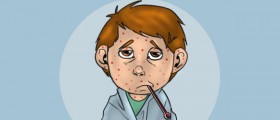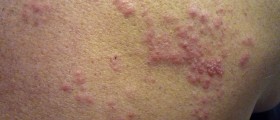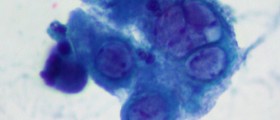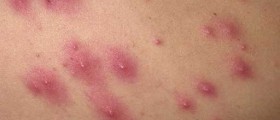
Herpes zoster infection also known as shingles is a form of very painful skin rash that results from reactivation of the varicella-zoster virus. The virus initially leads to chicken pox but it is able to become dormant for many years and once a person's immune system becomes too weak and especially if there are certain triggers such as increased stress or other illnesses the virus reactivates and leads to shingles.
Is Herpes Zoster Contagious?
This is a contagious illness. Since the virus becomes reactivated it is found in the specific skin lesions and blisters that form the skin rash. In case the content of the blisters comes in contact with people who have not had chicken pox they may develop the disease. So only if there have been a direct contact with a person suffering from shingles and whose skin changes are open the virus can be transmitted and cause the infection.
Even people who get chicken pox this way are susceptible to eventually develop herpes zoster. This is why the cycle continues and the virus may be reactivated.
The person suffering from shingles stay infective until the skin changes start to crust and heal. The crusts prevent further transmission of the virus. Hence any contact with the person who have not had chicken pox in this stage of the disease does not lead to the onset of chicken pox.
Presentation of Herpes Zoster Infection
The infection features with very painful and specific skin rash. The affected skin is burning and there may also be numb as well as tingling sensations. The rash is red and made of many fluid-filled blisters. The blisters eventually rupture and crust. Additional symptoms and signs of infection include fatigue, headache, general fever and chills. The rash in herpes zoster develops in a particular manner. Namely, it is only located in the area innervated by the nerve in whose ganglion the virus settled and became latent. Treatment for Herpes Zoster
The goal of treatment for herpes zoster is to alleviate pain and eliminate all the unpleasant symptoms of the infection. Patients may be administered specific antiviral medications. The person must have plenty of rest and should relax. The pain is alleviated with pain killers. In case of complications of herpes zoster such as post herpetic neuralgia patients require prolonged treatment and administration of medications for a longer period of time. This severe complication of herpes zoster may require even more aggressive treatment with many medications such as lidocaine skin patches, tricyclic antidepressants, anticonvulsants and opoid painkillers.

















Your thoughts on this
Loading...